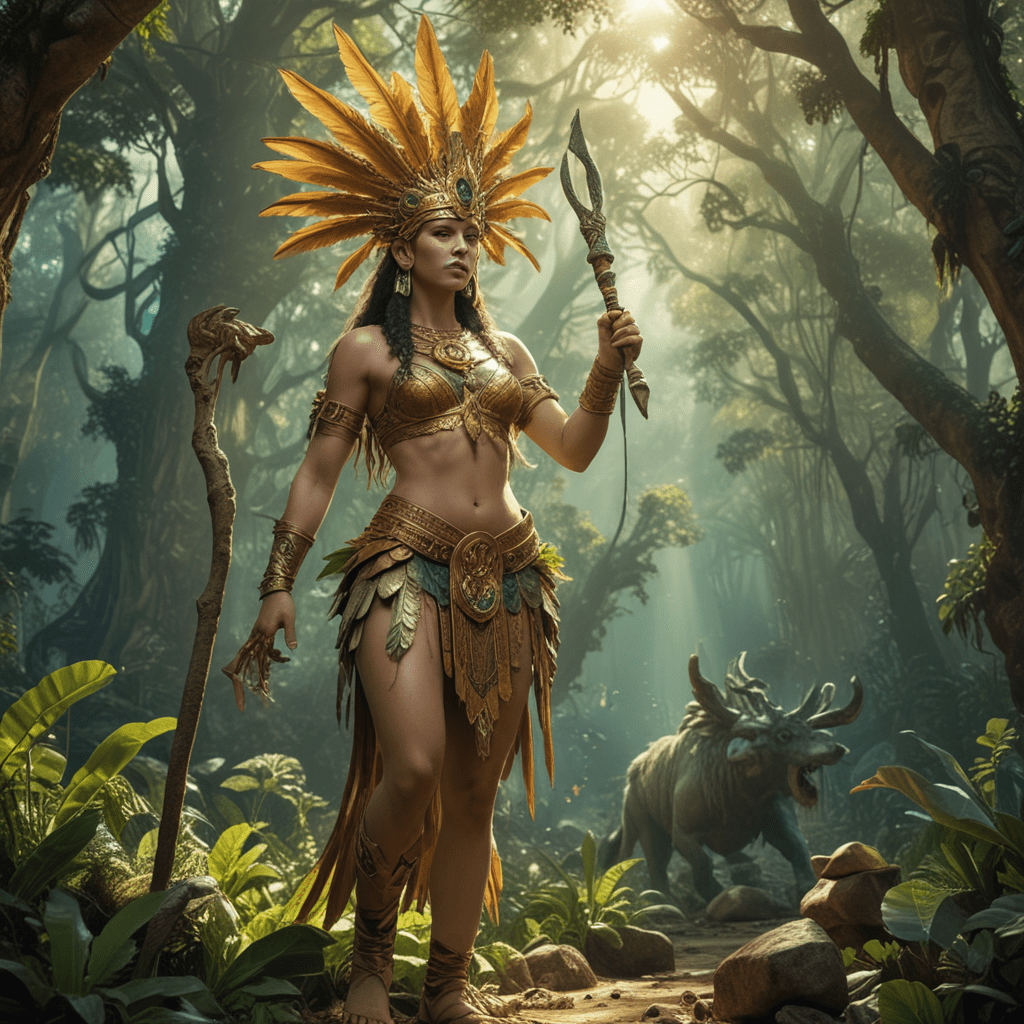The Significance of Nature in South American Indigenous Beliefs
Nature holds a pivotal position in the spiritual beliefs and cultural practices of indigenous communities throughout South America. These ancient societies have inhabited the continent for thousands of years, fostering a profound connection to the natural world. Nature is not merely a backdrop but an intrinsic aspect of their existence, embodying sacred entities, providing sustenance, and shaping the very fabric of their lives. Indigenous South American mythologies are replete with tales that illustrate the deep-seated reverence and understanding these communities hold for the environment.
Animals as Divine Beings and Ancestors
In South American mythologies, animals occupy a prominent place, often revered as divine beings or respected ancestors. The jaguar, for instance, is considered a sacred guardian in many Amazonian cultures. Its power and agility symbolize strength and leadership. Similarly, the condor, a large Andean bird, represents wisdom and spirituality. In the mythology of the Mapuche people of Chile, animals are believed to be the ancestors of humans, bestowing upon them knowledge and skills.
Plants and Their Medicinal and Ritualistic Properties
Plants hold immense significance in indigenous South American societies, serving both medicinal and ritualistic purposes. Many plants are believed to possess healing properties, and their uses have been passed down through generations of traditional healers. In the Amazon rainforest, ayahuasca is revered as a sacred plant used in spiritual ceremonies. The hallucinogenic effects of the plant are said to induce visions and facilitate contact with the spirit world.
The Significance of Mountains, Rivers, and Forests
Natural landmarks like mountains, rivers, and forests play crucial roles in indigenous South American mythologies. Mountains are often seen as sacred places, the abode of deities or the source of life-giving waters. Rivers are revered for their cleansing properties and their ability to sustain communities. Forests, with their abundance of plants and animals, represent a place of refuge, mystery, and spiritual connection.
Nature Spirits and Guardians
Indigenous South American beliefs recognize the existence of nature spirits, entities that inhabit and oversee the natural world. These spirits are believed to guard specific animals, plants, or places. In the mythology of the Quechua people of Peru, for instance, the apu spirits are believed to reside in mountains, protecting the land and its inhabitants. Respecting and appeasing these spirits is essential for maintaining harmony between humans and the environment.
VI. The Interconnectedness of Humans and the Natural World
In South American indigenous mythologies, humans are not separate from nature but are deeply interconnected with it. The well-being of humans is believed to be inextricably linked to the health of the environment. Respecting and preserving nature is seen as essential for the survival and prosperity of both humans and the natural world.
VII. The Power of Nature in Shaping Human Destiny
Nature is often portrayed as a powerful force that shapes human destiny in indigenous South American mythologies. Natural phenomena, such as storms, earthquakes, and floods, are seen as manifestations of divine powers or as messages from the spirit world. The actions of animals and plants can also have a significant impact on human lives. Dreams and omens are interpreted as guidance from the natural world, helping humans make decisions and navigate life's challenges.
VIII. The Role of Nature in Creation Myths
Creation myths play a fundamental role in indigenous South American mythologies. These stories often involve the emergence of the world from nature, with deities or ancestors transforming themselves into animals, plants, or natural features. The natural world is thus seen as the source of all life and the foundation of human existence.
IX. The Influence of Nature on Traditional Practices
The influence of nature is evident in the traditional practices of indigenous South American communities. Hunting, fishing, and agriculture are deeply rooted in the understanding of the natural world and its rhythms. Rituals, ceremonies, and festivals often incorporate elements of nature, such as animal masks, plant offerings, and sacred dances.
X. The Environmental Consciousness in South American Indigenous Mythology
Indigenous South American mythologies embody a profound environmental consciousness. They teach respect for the natural world, emphasizing the importance of conservation and sustainability. The interconnectedness of humans and nature is a central theme, promoting a harmonious relationship between the two.
FAQs
1. What is the significance of nature in South American indigenous beliefs?
Nature holds a pivotal position in indigenous South American beliefs, embodying sacred entities, providing sustenance, and shaping human lives.
2. How are animals portrayed in South American indigenous mythologies?
Animals are often revered as divine beings or respected ancestors, symbolizing strength, wisdom, and knowledge.
3. What is the role of plants in indigenous South American societies?
Plants serve both medicinal and ritualistic purposes, possessing healing properties and facilitating spiritual connections.
4. How do indigenous South American mythologies emphasize the interconnectedness of humans and nature?
Humans are believed to be deeply intertwined with the natural world, and their well-being is linked to the health of the environment.



